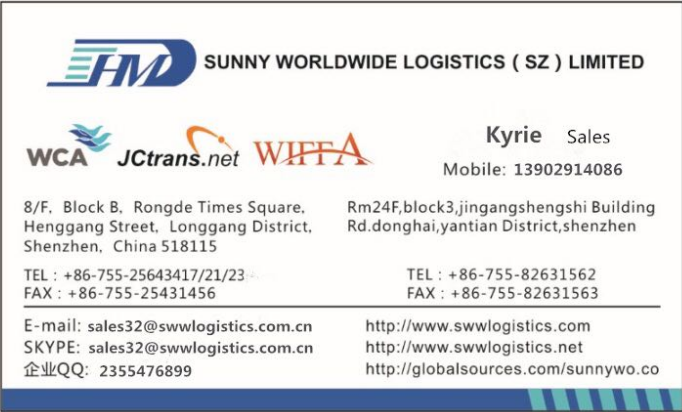What taxes are required to export to Germany?
- Author:Kyrie
- Source:Wutong
- Release Date:2020-01-03
The Federal Republic of Germany (German: die Bundesrepublik Deutschland), referred to as Germany (referred to as West Germany or Federal Germany before the unification of Germany and Germany), is a federal parliamentary republic in Central Europe. It is bordered by Switzerland and Austria in the south and by the Czech Republic and Poland in the east. The country consists of 16 federal states with the capital Berlin. What taxes are required to export to Germany? The following editors will give you a detailed introduction.
First you need to calculate the tariff (Zoll). The tariff rate of tariffs is the same as that of other EU countries. Germany implements uniform tariff rules, and determines the corresponding tariff rates according to the type of product and the country of origin. The basis is not only the price of the goods, but the price of the goods plus shipping costs and insurance, which is generally the CIF price of the goods, which is called the customs value (Zollwert).
The price of the goods is generally determined according to the amount provided in the form ** provided by the supplier, but the amount of the form ** is significantly different from the actual price, and the German customs department has the right to verify the true customs value at the market price; Fees and insurance are generally the costs stated in the bill of lading from the country of origin of the goods to the EU port. If the goods enter the EU by air, the logistics costs of air freight can be excluded from the tariff base.
The value of import value added tax (Einfuhrumsatzsteuer, EUSt for short) can only be calculated after the customs declaration value and the amount of customs duties have been determined. The general VAT rate for German import VAT is 19%, and food, books and other commodities are subject to a 7% preferential tax rate. The tax base of import value added tax is the sum of the above declaration value plus customs duty, plus transportation costs within the EU.
If a Chinese-funded enterprise sets up an enterprise in Germany and imports goods from China for sale in Germany, it should pay customs duties and import value-added tax in accordance with the above rules; import value-added tax can be used as input tax (Vorstauer), which can offset the output tax of the enterprise Withholding, if there is a balance after the current output tax deduction, you can apply for a tax refund in the current VAT forecast.
Whether goods that are imported into Germany and resold to other EU countries need to pay VAT, they need to be treated differently according to the specific sales target. If the sales target is an enterprise in another EU country, the seller generally does not need to pay again. VAT is a reminder to the buyer ’s company to declare VAT in the country in which it is located. If the sales target is an individual consumer in another EU country, the seller still has to pay VAT in Germany as usual.
First you need to calculate the tariff (Zoll). The tariff rate of tariffs is the same as that of other EU countries. Germany implements uniform tariff rules, and determines the corresponding tariff rates according to the type of product and the country of origin. The basis is not only the price of the goods, but the price of the goods plus shipping costs and insurance, which is generally the CIF price of the goods, which is called the customs value (Zollwert).
The price of the goods is generally determined according to the amount provided in the form ** provided by the supplier, but the amount of the form ** is significantly different from the actual price, and the German customs department has the right to verify the true customs value at the market price; Fees and insurance are generally the costs stated in the bill of lading from the country of origin of the goods to the EU port. If the goods enter the EU by air, the logistics costs of air freight can be excluded from the tariff base.
The value of import value added tax (Einfuhrumsatzsteuer, EUSt for short) can only be calculated after the customs declaration value and the amount of customs duties have been determined. The general VAT rate for German import VAT is 19%, and food, books and other commodities are subject to a 7% preferential tax rate. The tax base of import value added tax is the sum of the above declaration value plus customs duty, plus transportation costs within the EU.
If a Chinese-funded enterprise sets up an enterprise in Germany and imports goods from China for sale in Germany, it should pay customs duties and import value-added tax in accordance with the above rules; import value-added tax can be used as input tax (Vorstauer), which can offset the output tax of the enterprise Withholding, if there is a balance after the current output tax deduction, you can apply for a tax refund in the current VAT forecast.
Whether goods that are imported into Germany and resold to other EU countries need to pay VAT, they need to be treated differently according to the specific sales target. If the sales target is an enterprise in another EU country, the seller generally does not need to pay again. VAT is a reminder to the buyer ’s company to declare VAT in the country in which it is located. If the sales target is an individual consumer in another EU country, the seller still has to pay VAT in Germany as usual.
For international sea and air shipments, please contact Kyrie:


